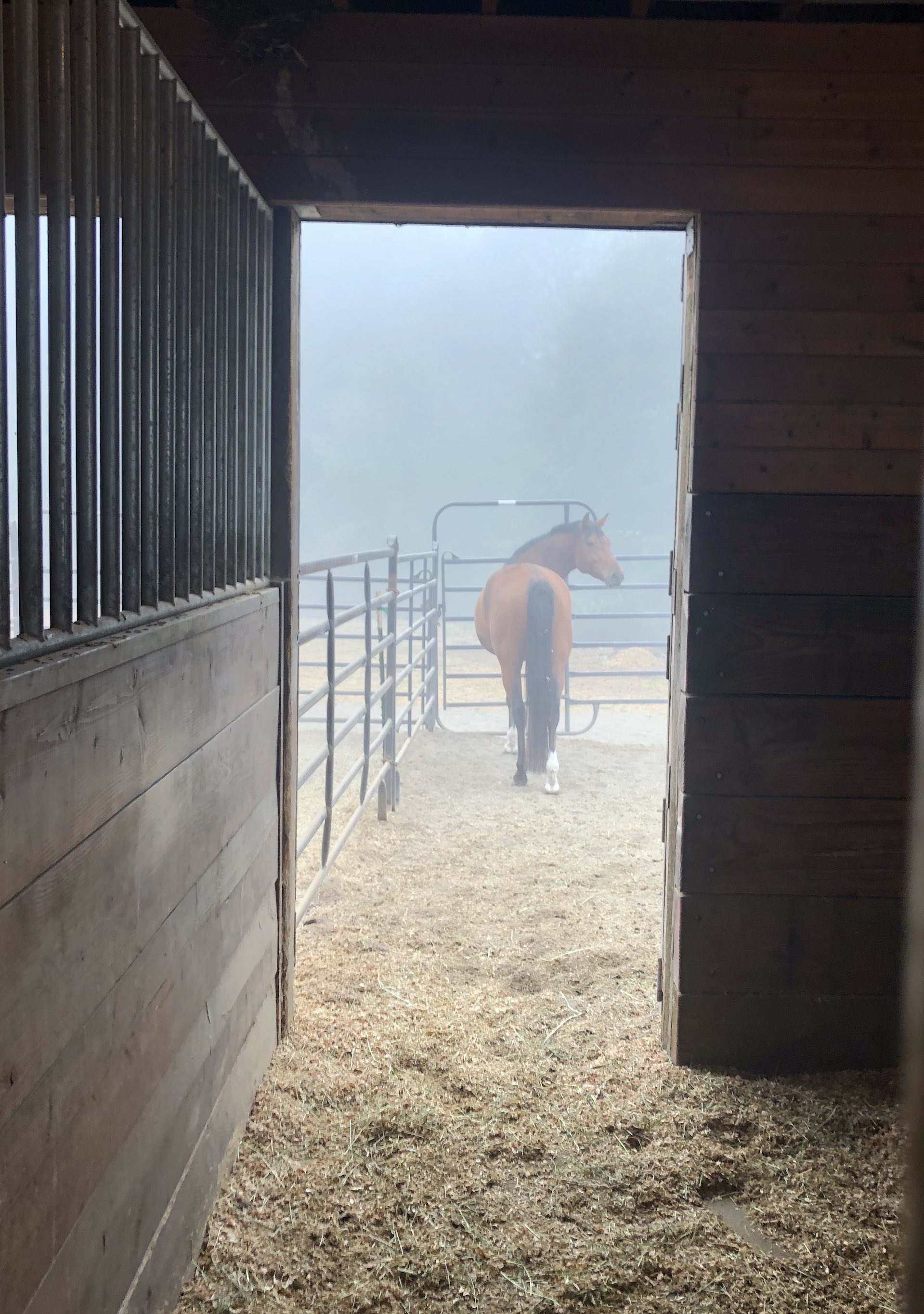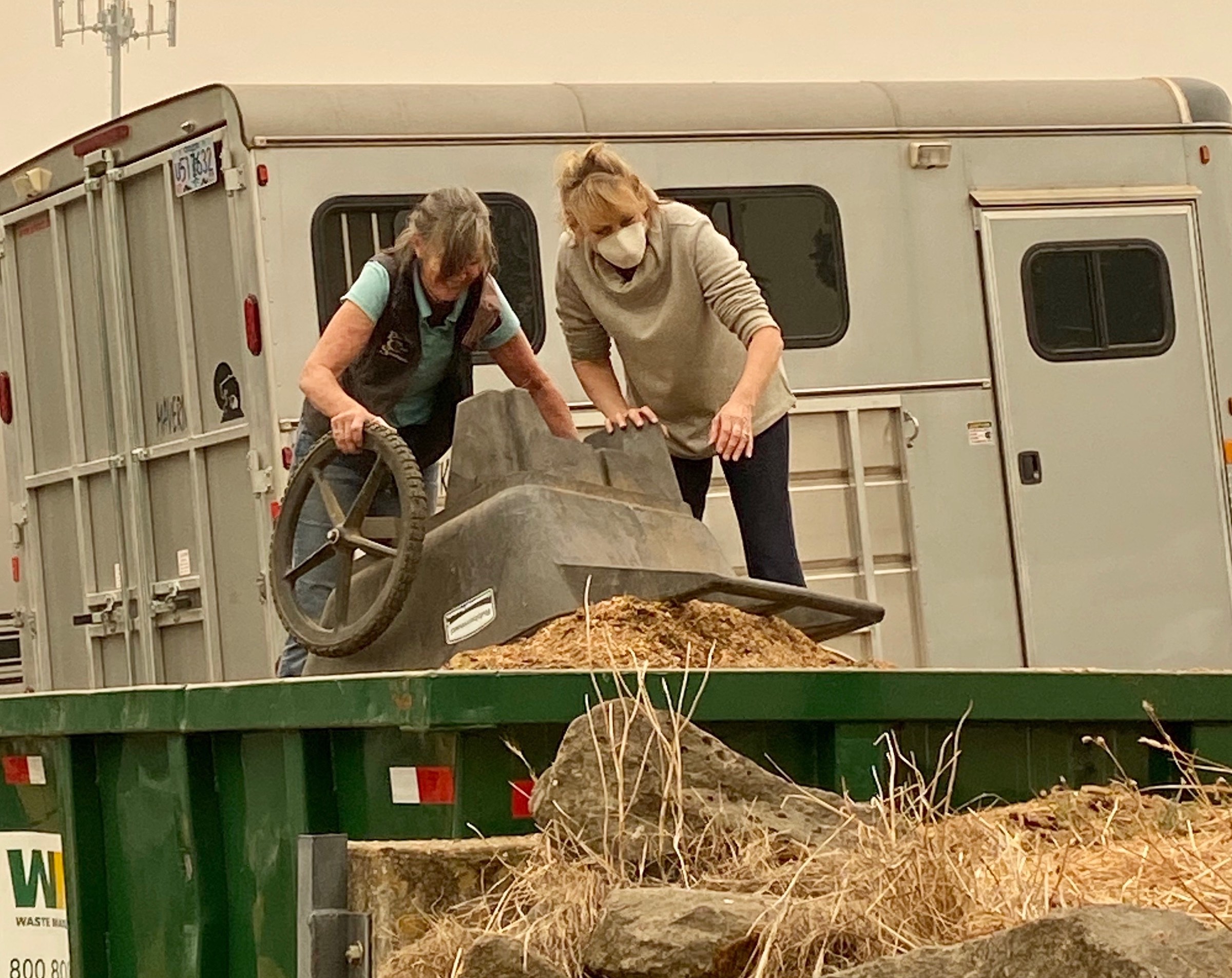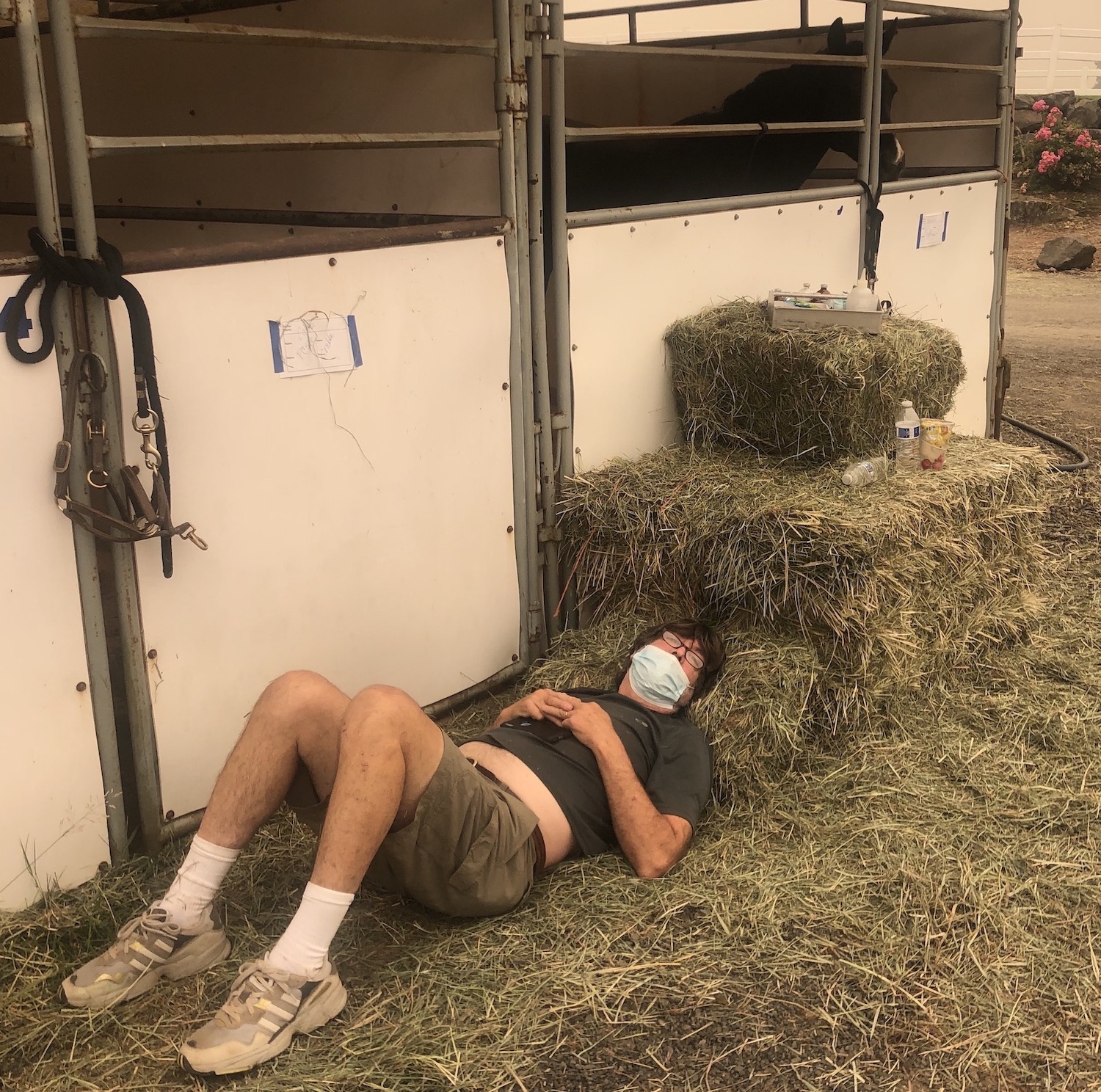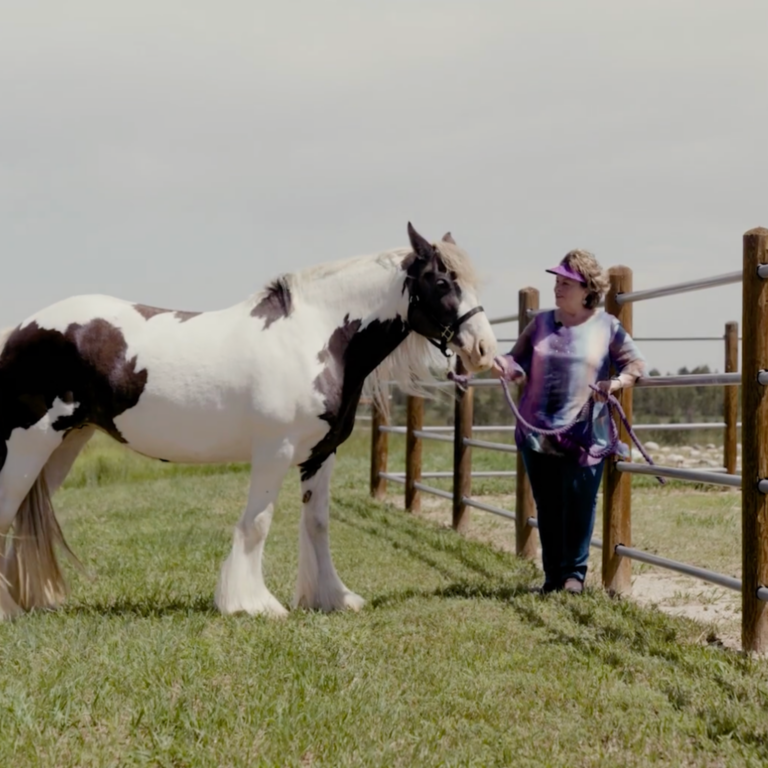
Have the wildfires raging in the West made you wonder what it would be like to have to evacuate your horses? Dr. Barb Crabbe, who just recently shared her horsemanship wisdom in this blog, had to do exactly that on September 8th, leaving behind her horse farm in Oregon City.
She and her husband and two daughters left early after receiving the official word, relocating their horses to the DevonWood Equestrian Centre, a large facility west of Portland.
“Our dogs and cat are with a friend southwest of Salem, and our family is now staying at my brother’s place just south of Portland,” says Dr. Crabbe, who since that time has been taking care of her own horses, working to keep other evacuated horses alive (providing sedation as needed), and helping with ongoing evacuations.
I asked her what she’d want to share with H&R readers about the reality of an emergency evacuation; here’s what she told me.
1. Be trailer-ready.
Make sure all your horses will load willingly in a trailer, even in a tense situation. Obviously, this needs to be verified in advance, but the reality is that you can’t rescue a horse if you can’t move him.
My horses did OK—with some sedation and very skilled handlers—but I can tell you that they’re all going to Trailering Boot Camp once this emergency is over. It was extremely scary.
Check your own rig in advance, and know whom you can call with trucks and trailers and the requisite skills to get all of your horses out in an emergency.
[RELATED: Resolve your horse’s trailering problems.]
2. Go early.
We were able to get all of our horses and animals out and situated before things got too crazy, and even emptied the house of valuables, important papers, sentimental things, and some furniture.
We’re hoping all that was overkill, but I can tell you, during the two scary periods when the fire came frighteningly close to our house, it was enormously comforting to think about what we had managed to save.
Another reason to go early—getting a spot. Potential evacuation spaces for horses in our area became limited at one point, and people were being evacuated then re-evacuated. I was happy my horses were already in the best possible spot.
Also, if you stay until the last minute you’re putting all of the people who are trying to help you at risk.
If you follow the leave-early guidelines, there should be no need for advice like “don’t leave a nylon halter on your horse when you turn him loose” or “write your phone number on his hoof with a Sharpie.” That’s the stuff you have to do when your lingering leaves you with no options.
[HERE’S HELP: Develop your equine-evacuation plan *now*.]

3. It’s a marathon, not a sprint.
Don’t try to be a hero by killing yourself in the first couple of days. Some people get caught up in a “omigosh this is terrible I must stay at the facility 24 hours a day” mentality…but remember any horses you’ve evacuated will still need care over an extended period of time. Pace yourself! Rest when you can and trade off duties with others.
4. Take essential basics.
It’s easy to overlook things like feed, buckets, feed tubs, a cleaning fork, and some kind of muck bucket (I had none of those things). For the long haul, there’ll likely be plenty of feed and bedding (because of generous donations), but for the first day or two you may be on your own.
5. Offered help? Say ‘yes, please.’
You may have to let go of some control of how your stalls are cleaned, how fresh your water buckets are, or how your horses are fed, and that’s OK. By the same token, when other evacuators ask for help, say “on my way.”

6. A few words to helpers:
Trucks and trailers are needed in the beginning, but bear in mind that most horse owners have a rig and everyone wants to do the heroic job of carting animals out with fire lapping at their heels. Just as needed if not more so are the less glamorous jobs of bedding and preparing stalls at evacuation facilities and helping people when they arrive with three horses and just one handler.
Routine horse care such as cleaning stalls, emptying manure carts, and generally helping people tend to their horses are all vital, especially after the first couple of days. Walking through and filling water buckets, for example…so appreciated. It gets tiring and people are already exhausted.
Want to donate? Send money, not stuff. Many horse owners are stressed about how much it’s costing them to be relocated, while the owners of the evacuation facilities are most likely absorbing the costs for manure removal, porta-potties, and so on.
And now, a big shout-out to the people at DevonWood Equestrian Centre, where my horses are. They’ve been working 24-7 and are nothing short of amazing, especially owner Noah Rattner, who’s a remarkably kind, organized, and efficient human being. My sincerest thanks!
[READ: Plan for when you’re no longer here to care for your horse.]






